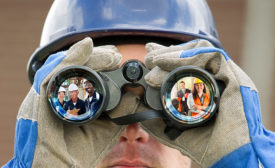Psychology in the Workplace
Personality tendencies impact performance
Are you a “doer,” “thinker,” “socializer” or “relator”?
June 21, 2019
It’s time for a New View of safety
Focus more on positive outcomes & systems, less on bureaucracy and human failure.
June 17, 2019
Big Pharma company takes on the “new view”
“We invented nothing ourselves but incorporated learnings”
June 13, 2019
Get our new eMagazine delivered to your inbox every month.
Stay in the know on the latest safety trends.
SUBSCRIBE TODAYCopyright ©2024. All Rights Reserved BNP Media.
Design, CMS, Hosting & Web Development :: ePublishing












